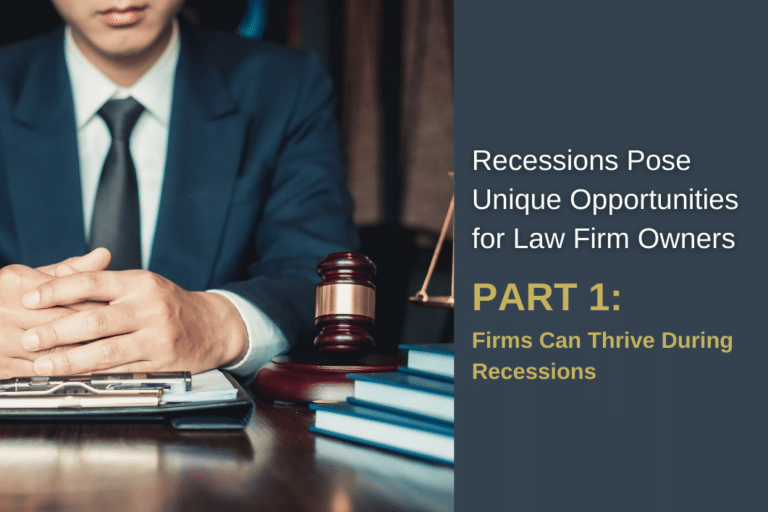Legal Talk Network’s The Un-Billable Hour host, Christopher Anderson, recently invited LAWCLERK CEO, Greg Garman, on his show to discuss the challenges and problems in current small firm business models. Below is a synopsis of the conversation, and the insightful 2-part podcast is now available for listening.
Chris:
What are you seeing as the big challenges the legal industry is facing right now?
Greg:
Legal is the largest piece of the U.S. economy that hasn’t been disrupted by technology. We account for nearly 2% of the U.S. GDP, that makes us nearly $350 billion industry, and to put that in perspective, that’s the same size as the entire economy of Israel. It’s larger than the economy of Ireland.
We’re producing 30,000-35,000 new lawyers a year in an area of the economy that candidly is no longer growing. We’re simply producing too many lawyers and those people are finding themselves dramatically underemployed. There’s a supply-demand tidal wave that’s really impacting the business of law. We’ve been producing a lot of lawyers going into a marketplace that’s not growing. And, we are producing very few hours of productivity right now.
Chris:
With 50-80% of legal needs going unmet in the marketplace, there are huge opportunities for lawyers to adapt and serve more clients. What hasn’t happened that has happened with other markets?
Greg:
The first is that we as lawyers are trained in the art of precedent. We are trained to be cautious. The things that make us entrepreneurs are driven out of us in law school, in some ways appropriately so because we are a conservative lot by nature, and we think precedent is the most important thing. The second thing is Bar Associations. Bar Associations have the best interests of clients at heart and I am generally a huge fan of what they do. But, in balancing protecting clients from unscrupulous lawyers, they have made it harder to evolve the business and that’s a balancing act that’s very hard.
Chris:
Why is the billable hour transactionally very profitable but not strategically?
Greg:
The billable hour came out of a world in which it was the proxy or the measurement for value – when it was a manual economy. But the economy has fundamentally reinvented itself, not only as a service economy, but as an economy based upon leverage. This is the evolution of acknowledging that what we do as lawyers, while it’s really, really important, has been turned into much of a commodity. 99% of legal has been done before and we should learn from the work product that others and we have created.
As lawyers, we stick with the billable hour among other reasons because we have a bit of an inflated belief that what we do is like custom and bespoke made for our client. We forget that the largest fortunes in history, modern history, have all been commodities. We can expand our markets, lower the cost of the goods that we deliver by employing tools and strategies and technologies that allow us to leverage the knowledge we have, leverage the work we have done and distribute it in a way that is more than just one-on-one. But, in a way in which modern media and even to a certain extent modern medicine are able to leverage their knowledge base and their products to become a bigger piece of the economy. In a way that fits with the evolution from a labor-based economy to a knowledge-based economy.
Chris:
Successful companies from Standard Oil to Apple with iPhones and Samsung with some of their products have delivered commoditized products to the world. How can that experience be translated into what’s going to happen in law?
Greg:
The real win-win for lawyers is if we can cut the cost of legal services but at the same time leverage what we’re producing. For example, if it’s going to take a general practitioner 10 hours to learn a subject but they can go hire a freelance lawyers who specializes in the subject, attorneys can actually deliver services faster with less time invested and a better quality product. At the end of the day, it’s a lot better to bill two hours at 500 bucks an hour that it is 10 hours at 100 an hour. Getting smarter is the way to go. The goal is to keep profit margins for lawyers even or expand them and cut the cost of legal services, and by doing that we can grow the market. Are there people who need custom wills and trusts? Yes, of course, but can 99% of the work be based on a well-produced set of documents that need some, but limited customization based upon circumstances? The answer is yes.
Chris:
Seth Godin says 85% of this is commodity word that we must drum out of the cost structure in every way we can so that we have the opportunity to deliver that 15% of what we do, which is art. How can our industry build efficiencies into the practice of law while bringing small firm business models into the future?
Greg:
The business model that’s thriving in this world is specialization. And, its specialization because lawyers can produce a better product faster with a better profit margin because they know what they’re doing. General practitioners are a critical part of the profession that we have, but it’s becoming increasingly difficult to go out and learn on your clients’ dime what it needs to produce a particular document for them.
We must fundamentally look at our business models and technologies that can help us be more efficient. We work from a knowledge-base, but we work from our own knowledge base in ways that are incredibly inefficient. We have not embraced technology for a collective knowledge-base the way that we could have. I think that AI is beginning to do that, I think that contract automation is beginning to do that, and I think that the tools are there for lawyers to create niches for themselves, rely upon the intellectual capital that they’ve accumulated over time.
If you’re a general practitioner, having an associate that’s also a general practitioner doesn’t give you the ability to find the right cost structure to deliver all legal services. So, the solos and smalls who are most successfully are building entirely new business models. For example, with the LAWCLERK marketplace, what they do is they find five or six lawyers they work with on a regular basis. They have a young lawyer to do their memos, they have a mid-level litigator to do the discovery. They have somebody that they outsource the real estate work to because specialization leads to producing better product faster. The whole key is you can’t pay to have these people work for you full-time, so you share them amongst the rest of the marketplace, and you pay them only when you need them.
Chris:
So, let’s put it all together, what’s the future business model? What is this all trending toward? What do you see?
Greg:
This is the most exciting part because I really think the future business model is everybody having their own business model. This isn’t a profession in which there is a one-size-fits-all answer. There are cases that are best driven on a contingency basis, and there will always be cases that will be best driven on an hourly fee basis. We’re seeing lawyers experiment with portfolio pricing, particularly in intellectual property arenas of the world.
I think our best days lie ahead of us for entrepreneurial spirited lawyers. I think it’s a great day to be a lawyer, but the world is going to be unrecognizable in five years.
Learn more about Christopher Anderson and his latest book, Profit First for Lawyers, HERE!









